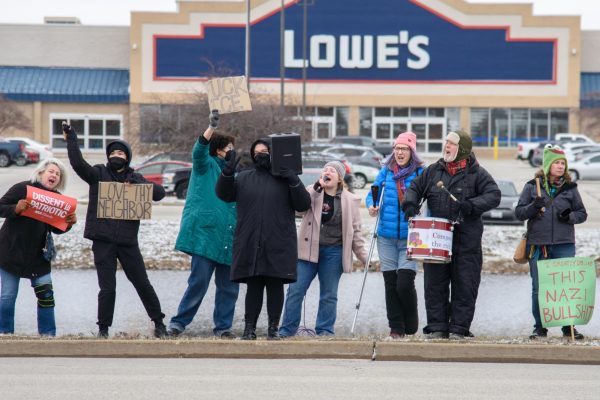File sharing programs face ongoing piracy debates
Nov 15, 2005
File-sharing and college students are two things that go hand-in-hand. A college student from right here in Illinois developed the first peer-to-peer (p2p) client to hit it big, Napster. The p2p programs have been so successful in part because the younger generation, including many college students, has been behind them. But one by one they have fallen.
Napster got itself into a little bit of legal trouble at the hands of Metallica, and was shut down and subsequently turned into a legal online music service. More decentralized p2p programs were then introduced to avoid legal troubles. However, many of those have faded into obscurity.
The defense of these decentralized file-sharing programs was that they could be used for legitimate reasons and thus could not be held liable for copyright infringement. This is a reasonable argument; just because something can be used to do something illegal, does not mean the thing itself is illegal. Indeed, even if it is most often used in an illegal nature, it does not mean that the thing itself is illegal. Courts in the United States have recognized this fact through its rulings concerning VCRs and the like.
File-sharing programs can be used by independent artists to share their work, by business people to share their ideas, and by many other people in completely legal ways.
However, the Supreme Court decided in June that if a p2p client “actively induces” its users to download illegally, it can be held liable for secondary copyright infringement. Thus, the door is opened for the Recording Industry Association of America to target p2p clients as well as individuals guilty of copyright infringement.
Get The Daily Illini in your inbox!
And this is exactly the situation that led the music industry and Grokster, a p2p program, to reach a settlement that includes the shut down of Grokster services. The recording industry declared a victory, and I would have to agree, this is indeed a victory for recording companies. Of course, this is not a complete victory for recording companies, as there are still online services such as BitTorrent. The various BitTorrent programs not only allow for faster downloads and less bandwidth usage, but also do not have search features and require uploading, leaving a sharer’s identity open -two features which might make it less susceptible to legal problems.
Of course, if I were running the recording industry, I would be upset that my rights were being infringed upon so often. I’ve heard fellow students complaining about professors stealing student work and submitting it to publications as their own, while telling me in the same conversation that file sharing is fine. However, sometimes they can go too far and add to the ill-will already felt by many against them.
I’m not referring to the plethora of suits filed against individuals. Honestly, they broke the law, they had it coming and so far the recording industry and Motion Picture Association of America have been willing to settle out of court for relatively small amounts (let’s face it, most of these people being sued are actually liable for millions, legally speaking). The tactic is a being used as a deterrent, not because these industries simply feel like suing the hell out of a bunch of average people.
Arguments for file sharing are essentially worthless, because any way you break it down, the individual is engaging in direct copyright infringement. And attempts to demonize the recording and movie industries are hypocritical at best, since they are the ones in the right.
Of course, this doesn’t make the industries infallible. Sony recently introduced new anti-piracy software that was embedded in their media, and then suspended use of the innovation after public outcry. Why was there public outcry? Because the software worked in much the same way as malicious viruses and left individuals’ computers more susceptible to viruses. Even someone from the Bush administration spoke out against the new technique by Sony.
Although the industries can sometimes overstep their bounds, they have reason to be fighting piracy so vigilantly. The shutdown of Grokster can be counted as a major success in their fight against piracy. There is a reason that measures in Congress taken against piracy are often bipartisan; it’s because Congressmen and Senators on both sides of the aisle, unlike so many online pirates, can tell the difference between what is legal and ethical and what is not.
John Ostrowski is a junior in Communications. His column appears on Tuesdays. He can be reached at [email protected].





